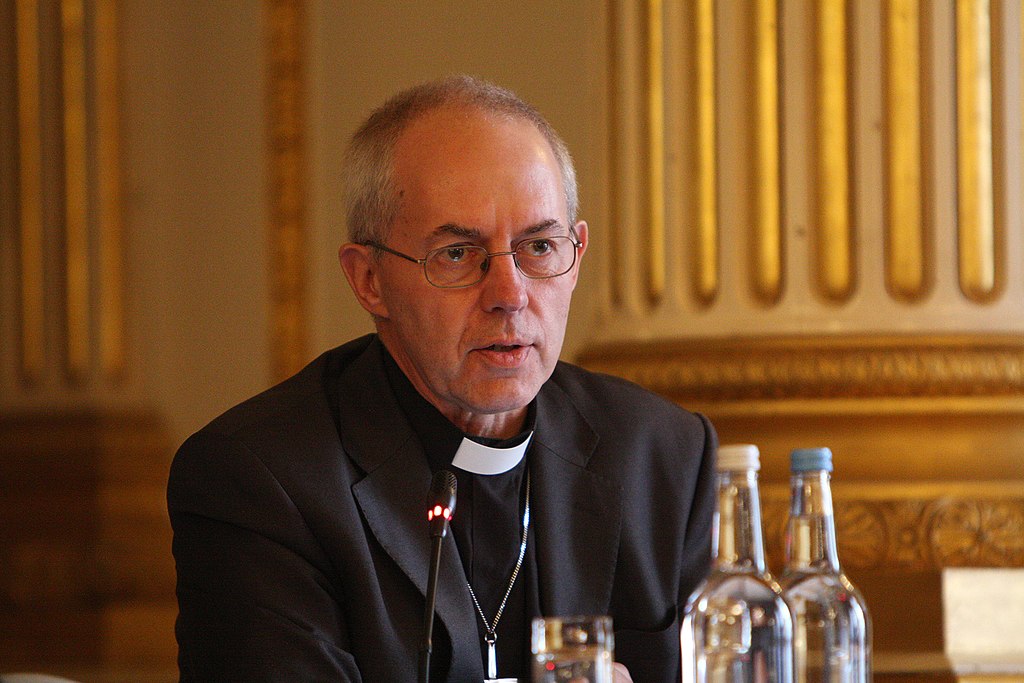Content warning: This story contains a description of sexual abuse. Please take care when reading.
As I pressed “send” on my email, attaching a letter to him calling on him to resign, the news on my screen flashed – “Justin Welby, Archbishop of Canterbury, has resigned.” The spiritual leader of the global Anglican church, Welby had been under increasing pressure to step down after a new report showed he had done nothing to intervene and ensure safety and due process when told on numerous occasions between 1978 and 2013 of sexual and physical abuse by John Smyth, a counsellor at Anglican summer camps.
You may unsubscribe from any of our newsletters at any time.
I am a survivor of sustained and terrifying clerical sexual abuse as a teenager by Meirion Griffiths, then an Anglican minister in the Diocese of Chichester. Forty years later, I was finally ready to sue the church to end his ability to use the power of his “cover” as a priest to hide his predatory behaviour. In the early ‘90s, I had tracked him to Perth, Australia, and later made a formal complaint about him there. Following their investigation, the Bishop of Perth wrote to me that Griffiths’ file had been marked “not to be employed” by the diocese.
In 2014, I decided that I needed to do more, having discovered that Griffiths had just moved up the road and joined another denomination. He still had access to young people and could still use his status as a priest to draw them in and abuse them. My solicitor wrote to Welby asking him to intervene and settle my case. He described the horrendous abuse I suffered over 18 months – evidence accepted by the Perth diocese – and informed him about a second complainant who reported Griffiths’ sexual abuse of her to Chichester police, resulting in their decision to press charges and seek Griffiths’ extradition from Australia.
The archbishop passed the letter on to one of his lawyers, who offered the usual performative apology.
“Please … convey to your client the archbishop’s concern and apology on behalf of the whole Church of England for the distressing and shameful events mentioned in your letter. . . Please assure your client that these safeguarding issues and the follow-up to historic abuse are high up in the archbishop’s priorities.”
More on Broadview:
- How NDAs silence victims and let perpetrators off the hook
- Notable Canadian Catholic priest accused of sexual assault
- Why pastors should not be counselling their parishioners
He then disingenuously claimed that he (the archbishop) was powerless to do anything because his lawyers were in charge.
“You will be very aware of the constraints under which we in the profession have to work in dealing with these miserable matters. The scope for personal and sensitive engagement is very limited.”
This statement suggests helplessness and passivity in the face of survivor trauma. It also points to a complete disconnect between sentiments expressed publicly by the Church of England and the actions of insurance litigators who aggressively defend the institution, even in the face of clear evidence of wrongdoing. This public mirage only heightens the hypocrisy that survivors have been obliged to endure.
I recount my story to show that the experience of John Smyth’s victims has been repeated over and over again in the pitiful and hypocritical response of the church to sexual abuse claims. So many horribly abused people have struggled to break through the rigid adversarial defensiveness of the church.
They have encountered a legal strategy that could not have been conceived in a more harmful way for victims. Denial, rude questions, blaming, demands to constantly retell their story and have it disparaged, and the refusal to give any ground.
Settlement in my case happened only because of publicity. Infuriated by the response from Welby, and further traumatized by the church’s defence which relied on archaic limitation statutes and suggested that Griffiths’ behaviour was “inappropriate” but not abusive and further was “not unwelcome” (forcing fellatio on a teenage girl scared out of her mind?), I wrote an article which the Church Times published in December 2015, in the face of strenuous opposition from the church.
Suddenly they were ready to negotiate.
Having wrestled with our demons for decades, survivors deserve genuine remorse and actions, not empty words. The Church of England needs to settle all outstanding lawsuits against it for clerical sexual abuse, stop using psychologists who tear victims down, and no longer require survivors to sign non-disclosure agreements (another area in which the church’s public comments have been wholly at odds with their private practice).
Survivors have seen for decades what the church is really doing about historic clerical sexual abuse — and now the rest of the world can too.
***
Dr. Julie Macfarlane is co-founder of Can’t Buy My Silence and emerita distinguished professor of law at the University of Windsor.














